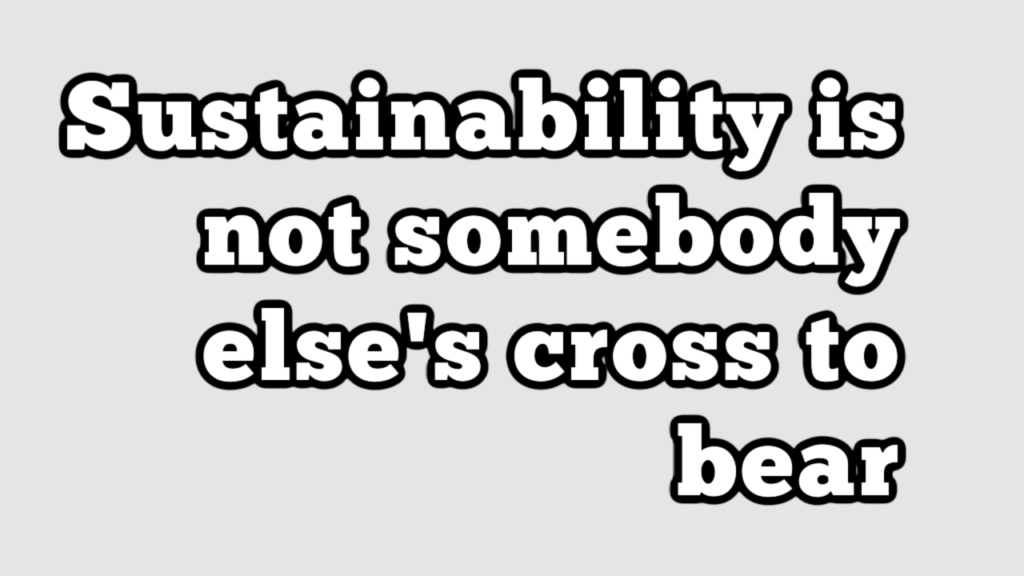Sustainability is not somebody else’s cross to bear

Here’s this note by Mark McElroy that reacts to this George Will opinion piece in the Washington Post:
When will the latter day Milton Friedmans of the world get it through their thick skulls that sustainability is not about the dubious imposition of social activism on businesses as their critiques so often suggest? Frankly, I couldn’t agree more with Friedman, and now George Will, Mike Pence, and many others, that if that is what we’re all talking about, we should be discounted at once. It’s not anyone’s job to involuntarily take up the cause of any other, and certainly not in a way that is being financed with their money without consent!
But that is NOT what we’re talking about in sustainability. What we’re talking about in sustainability is acknowledging the full scope of duties and obligations organizations have (not just the narrow fiduciary ones) to manage their social and environmental impacts in ways that: a) do not infringe upon the rights of others, and b) have nothing to do with social or political activism (unless they and their shareholders have chosen it, in which case enforceable duties arise).
Thus, in sustainability we’re not talking about discretionary impacts at all. Activism, philanthropy and social beneficence is somebody else’s cross to bear, not ours. Rather, we’re talking about responsibilities that organizations legitimately have to neither put the well-being of others at risk, nor fail to fulfill their moral obligations of all kinds. Sustainability, that is, is all about performance relative to the obligatory, not the discretionary!
And for God’s sake, stop conflating sustainability with ESG. They are not the same thing, and the sustainability community wants nothing to do with the other (ESG). If George Will and others want to be taken seriously in these circles, they’re really going to have raise their game a notch or two in order to get with the program. Things are a bit more nuanced and evolved than they seem to realize.
In addition, here’s something that Eric Roston wrote for Bloomberg Green:
More than 5,200 businesses have pledged to cut their greenhouse gas pollution to zero by 2050, or reach “net zero” by canceling out emissions with forestry or other projects that remove CO₂ from the air. They include some of the world’s biggest companies across all sectors: Apple, Zurich Insurance, P&G, General Motors, and so on.
But as the corporate net-zero juggernaut powers on, the less sense it makes, critics say, and it may do more harm than good. Their reason is simple: the only net-zero goal that matters is the one that applies to the entire planet. At the largest scale, discussion of “emissions” and “removals,” or drawing down CO₂ through forestry and other means, is grounded in Earth science, in the physical movement of carbon into the air and back down again. That’s “net zero.”
Companies can help. But companies can not be net-zero, and their pledges are more directly based on arithmetic than geochemistry, according to Carbone 4, a French consultancy that works with companies measuring their emissions and deciding what to do about them. “The idea of a carbon-neutral company is fundamentally dubious,” they wrote last July.
They’re not alone. The French government last year issued guidance that echoed Carbone 4’s diagnosis of corporate net-zero goals. Nobody should claim to be “carbon neutral,” wrote the Agency for Ecological Transition (ADEME). A net-zero watchdog this month introduced a trial “code of practice” to help evaluate corporate net-zero claims, and the UN Secretary general has launched a group of experts to look at non-national net-zero pledges.
